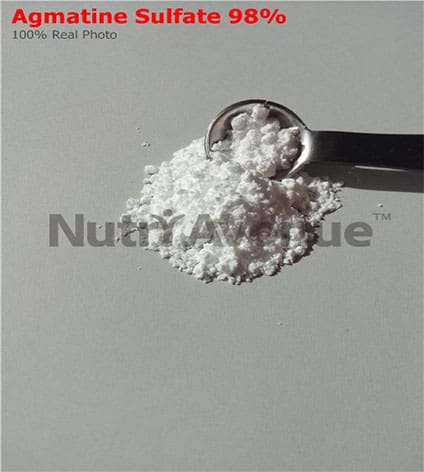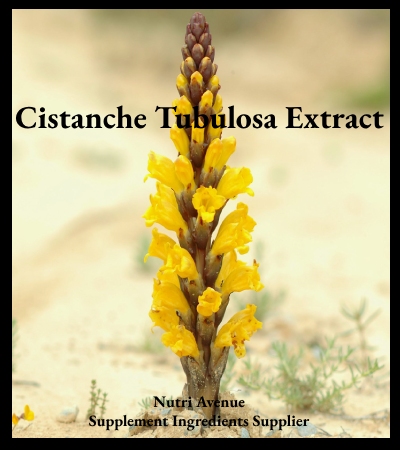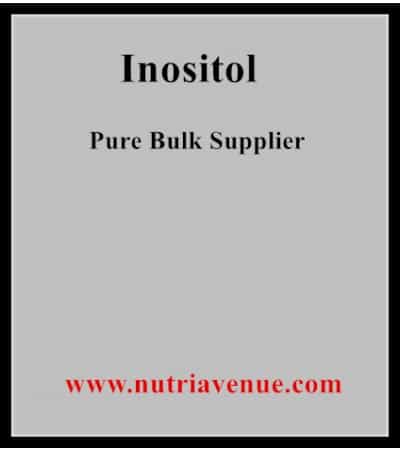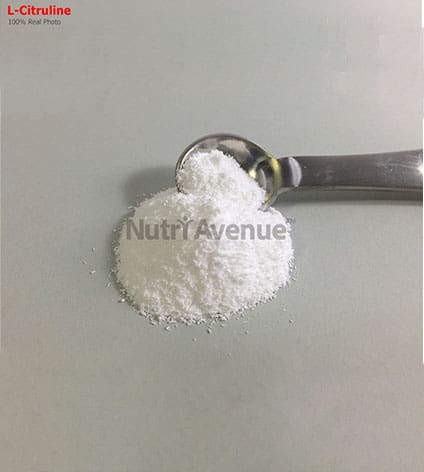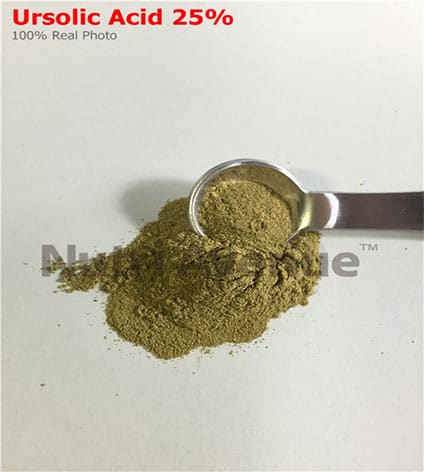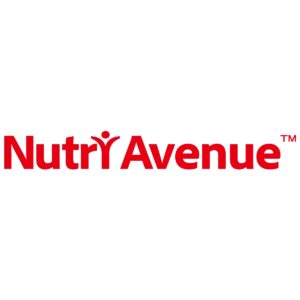Agmatine Sulfate
Nitric Oxide Booster: Agmatine Sulfate
Agmatine Sulfate is a valuable supplement ingredient known for its benefits in improving overall blood circulation, especially among athletes. This is made possible by the vasodilatory effects of the compound through nitric oxide pumping. Studies also reveal that the said supplement ingredient is useful in reducing blood pressure.
What is Agmatine Sulfate?
Agmatine Sulfate is a well-known compound used in the formulation of many modern health supplement products. Its molecular formula is C5H14N4-H2SO4 and its weight is 228.27.g/mol. The CAS Number of the compound is 2482-00-0. Essentially, Agmatine Sulfate is used in treating neuropathic pain and enhancing nitric oxide levels among bodybuilders and athletes.

Agmatine vs. Agmatine Sulfate
Generally, Sulfate Agmatine and Agmatine are used interchangeably when referring to the said health supplement ingredient. Agmatine is a naturally occurring compound in microorganisms, plants, and even human beings. It is, in fact, a derivative of the amino acid L-arginine which is well-known for its effects in improving cardiovascular functions and improving wound healing.
While Agmatine is potent in itself, researchers have found that the inclusion of the compound Sulfate in its formulation synergizes its effects when it comes to increasing nitric oxide levels. Hence, the use of the more potent formula Agmatine Sulfate has become widespread among dietary supplement manufacturers.
Purity and Solubility
Typically, Agmatine Sulfate is soluble in water. This means that it can easily be dissolved or broken down in the water.
As presented in most studies, the purity of the compound is >98%.
Nitric Oxide Comparison

Agmatine Sulfate vs. Arginine
When it comes to nitric oxide boosters, both Agmatine Sulfate and Arginine are well-known and recognized among health experts and manufacturers of dietary supplement products. Thus, concerning health benefits, both ingredients have almost similar effects.
Studies show, however, that Agmatine Sulfate is more beneficial in pain reduction, as well as in preventing addiction among patients who are taking opioids for long periods. It is also claimed in some researches that the health benefits of Agmatine Sulfate are more pronounced than Arginine, making it the top choice among health supplement manufacturers.
Agmatine Sulfate vs. Citrulline Malate
Both Agmatine Sulfate and Citrulline Malate are beneficial when introduced to the human body through health supplementation. Nonetheless, recent studies suggest that the combination of the said dietary supplement ingredients may lead to a synergized effect especially in terms of increasing nitric oxide levels in the body. While combined Agmatine Sulfate and Citrulline Malate are very effective in enhancing overall blood flow and preventing hypertension and its dangerous effects, it is not intended to diagnose, treat or cure severe cases of vasoconstriction and circulatory problems.
Agmatine Sulfate Kratom
It has also been a matter of interest when some researchers began to combine Agmatine Sulfate with Kratom, a potent stimulant derived from Mitragyna Speciosa, an Ayurvedic herb. According to studies, the inclusion of Kratom in Agmatine Sulfate powder health supplements augments its general effects not only in terms of nitric oxide flow but also in enhancing agility and motivation, thereby promoting optimal performance in the pre-workout stage among athletes. Studies on the efficiency of Agmatine Sulfate and Kratom combinations are currently being conducted to fully understand how these ingredients augment the function and health effects of the other.

Agmatine Sulfate Benefits
The use of Agmatine Sulfate in health supplement product formulation is believed to provide a lot of benefits to individuals. While it is primarily known to improve performance among athletes, researches show that the use of the compound by adults can also result in improvement in overall health and wellness.
Some of the popular benefits associated with the use of Agmatine Sulfate are as follows:
-
Nitric Oxide pump
The most important health effect of using Agmatine Sulfate as presented in the majority of health research is that it is beneficial as a nitric oxide pump. Nitric oxide occurs naturally in the human body and contributes to a lot of bodily processes that maintain life. Essentially, nitric oxide plays a vital role in vasodilation or the relaxation of the internal muscles of the blood vessels, thereby increasing blood flow to certain areas in the body which require oxygenation and nutrient supply.
Increasing nitric oxide is not only useful in increasing blood flow. Studies suggest that the vasodilatory effect of nitric oxide also contributes to an effective decrease in blood pressure. Scientists and medical practitioners are currently looking into the possibility of using Agmatine Sulfate in the medical treatment and prevention of hypertension.
Recent medical researches also suggest that the nitric oxide pump effect of Agmatine Sulfate may contribute to sexual health among men. This is because penile enlargement is associated with increased blood flow towards the genital area during a sexual engagement.
-
Enhance exercise performance
Athletes and bodybuilders who are engaged in extraneous exercises are also quite interested in using Agmatine Sulfate as it is known to enhance exercise performance. The compound effectively increases blood flow towards muscles during exercise which makes recovery faster and more efficient.
It has also been found that the compound helps prevent rapid wear and tear of muscles. This means that athletes and bodybuilders who use Agmatine Sulfate may experience a boost in their recovery period, thereby allowing them to exercise for longer periods.
Many experts suggest that Agmatine Sulfate should be used by athletes before working out. However, depending on its formulation, Agmatine Sulfate may also be used as a usual dietary supplement among workout enthusiasts.
-
Pain reduction
Since its discovery in the early 1900s, Agmatine Sulfate has been subjected to health studies to find out its effects on pain reduction. Interestingly, modern studies have discovered that the compound is quite essential in reducing nerve pain among patients who are suffering from herniated discs. It is not yet fully understood how Agmatine Sulfate reduces pain perception among individuals who are suffering from chronic pain. Nonetheless, experts say that this is a fascinating discovery as it may help a lot of patients who are diagnosed with illnesses associated with long-term pain perception.
Another health study on Agmatine Sulfate has established that it may be used along with opioids for synergistic effects. Also, it was suggested that addiction to opioids for patients who need to use the said drug for long periods may be prevented when the said medication is combined with Agmatine Sulfate dietary supplements. For this reason, Agmatine sulfate powder is currently being used in the formulation of dietary supplements for patients who are suffering from chronic pain.
For patients with acute pain, it is merely suggested that Agmatine Sulfate powder may augment the effects of painkillers like fentanyl and morphine.
Agmatine Sulfate Dosage

The appropriate dosage for the use of Agmatine Sulfate in dietary supplements is dependent on the individual user’s age, physical health condition, weight, and other factors. Medically, the dosage for intake of the said compound also depends on what is intended to be treated. For example, if the compound is intended for use in treating neuropathic pain, higher doses may be indicated.
In general, however, the dosage for effective Agmatine Sulfate use in health supplements is 1.6-6.4mg per kg of the individual user’s body weight.
It is important to note that the healthy dosage for Agmatine Sulfate may vary among persons who are suffering from certain illnesses. Thus, consulting a physician for advice is recommended among persons with underlying health conditions.
Agmatine Sulfate Side Effects
Long-term side effects of using Agmatine Sulfate are not yet well-known and are currently being subjected to health research. However, it has been reported that some persons who take Agmatine Sulfate may experience mild side effects which include upset stomach and diarrhea.
Nausea and vomiting were also reported to be common side effects.
It is recommended that persons who experience severe side effects such as those affecting the respiratory system should immediately consult their physician. Also, according to the Food and Drug Administration, this product is still subject to intensive research to determine not only its potential side effects but also its adverse effects on the body.

Agmatine Sulfate Price
Agmatine Sulfate powder may range from $15-$24/kg when purchased from reputable health supplement ingredient suppliers like Nutriavenue.com. Prices may vary based on quantity of the product to be purchased, detailed specifications, and also, stock availability.
In order to get the best quote, sending an email to Nutriavenue.com will be helpful.
Where to Buy Bulk Agmatine Sulfate Powder?
Bulk agmatine sulfate powder may be purchased from reliable suppliers including Nutriavenue.com. The said company offers a wide variety of dietary supplement ingredients which are of high quality and affordable pricing.
Nutriavenue.com also outstands other supplement ingredient suppliers as it is an FDA-registered ingredient supplier with registration number 11091980978. Its factories are likewise certified by the FDA, Kosher, Halal, and GMP.

Conclusion
The use of Agmatine Sulfate powder in health supplement products is a remarkable step in the alternative medical field. Not only is it beneficial in improving overall performance among athletes but it is also quite useful in enhancing blood supply. Nonetheless, it must be noted that the said ingredient does not diagnose, treat or cure with certainty any illnesses or physical disorders.

